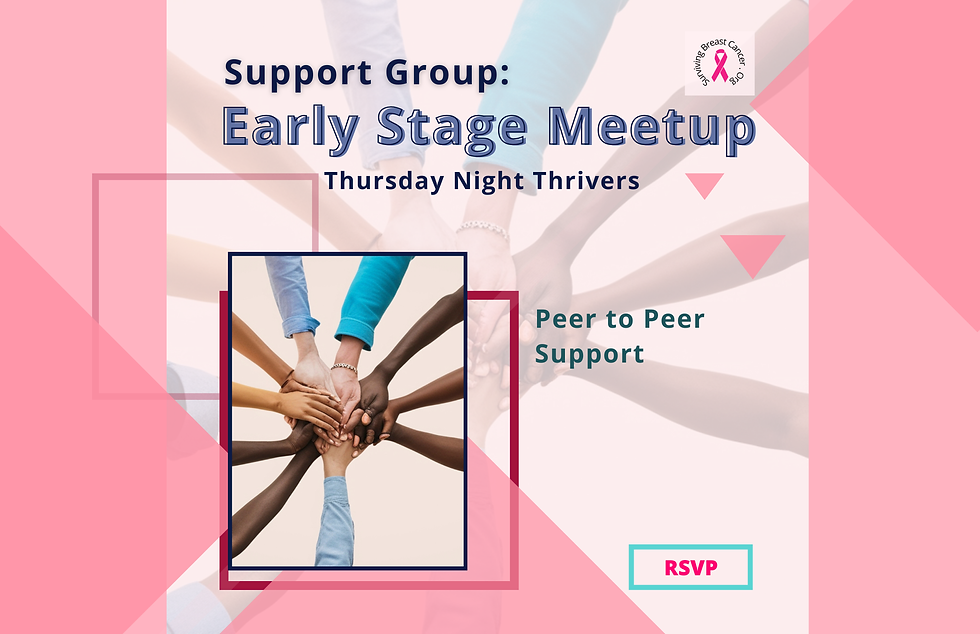Clinical Trials 101
- Surviving Breast Cancer

- Aug 7, 2022
- 3 min read
Updated: Oct 29, 2025

Clinical trials are research studies involving people that help inform medical practice, answer specific questions regarding biomedical remediation, and test the efficacy of specific treatments and drugs. The US breast cancer drug market alone is projected to become a $20 billion industry by 2026, with 350 drugs currently in the pipeline, according to the latest report from Research and Markets[1]. With so many new drugs being studied, there is great expectation to be able to extend a patient’s life and potentially find a cure for breast cancer.
With so many breast cancer drugs in the queue, would you be willing to participate in an upcoming clinical trial? Before we address that very personal question, let’s take a step back to understand what a clinical trial actually is.
What is a Clinical Trial
As mentioned above, clinical trials are research studies that involve people and help to inform medical practice. Clinical trials are divided into four phases, which build upon each other and each answer a specific research question in order to identify ways to prevent, screen, or treat a disease. Some clinical trials are also comparative and evaluate the benefits and efficacy of current treatments compared to new potential therapies.
Phase I studies usually test new drugs for the first time in a group of 10 or fewer to evaluate a safe dosage range, how to administer the drug (i.e., oral, intravenous, etc.), and identify side effects.
Phase II studies continue to evaluate the safety and expand a larger group of human subjects to monitor side effects. During this phase, the drug is rarely compared to treatments that are considered to be the standard of care. The goal of this phase is to monitor the participants to see if the drug works. If so, it will progress to phase III.
Phase III studies are conducted on larger populations, typically involving 100 or more people and in different regions and countries. They are often the necessary phase needed before the drug is approved.
Phase IV studies take place after country approval and there is a need for further testing in a wide population over a longer timeframe.
Participating in a Clinical Trial
While the goal of clinical trials is to reflect a diverse population, data show that Black/African Americans make up 5% of trial participants, with Hispanic/Latinos representing less than 1%[2]. This lack of representation in clinical trials results in drugs being approved and widely administered, which may not be as efficacious among different populations.
These clinical trials are carefully designed, reviewed, and completed, and need to be approved before they can start. It is important to know that participating in a clinical trial is voluntary and 100% at one’s own will.
What are the Benefits of Participating in a Clinical Trial
Though they are experimental by nature, clinical trials can offer several benefits to participants, including:
The opportunity to play an active role in your own healthcare
Access to an expert team that can give you a deeper understanding of your condition
Access to new research or investigational medications before they are widely available
Additional care/tests specific to the trial
The knowledge that you’re helping others
Your quality of health and life may improve
Learn More
This is just scratching the surface of clinical trials. Join us for a livestream webinar where we speak with the experts and those diagnosed with breast cancer to learn more and hear about their experiences participating in trials.
References
[1] https://www.globenewswire.com/news-release/2021/01/21/2162347/0/en/US-Breast-Cancer-Drug-Market-Report-2021-2026-Drug-Price-Dosage-Clinical-Trials-Insights-20-Billion-Opportunity.html
[2] https://acrpnet.org/2020/08/10/representation-in-clinical-trials-a-review-on-reaching-underrepresented-populations-in-research/










